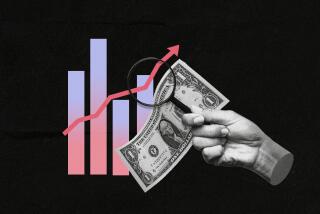US net worth grew in 2Q for first time since ’07
The net worth of American households grew in the second quarter of this year, the first increase in nearly two years, boosted largely by rising stock and home prices, the Federal Reserve said Thursday.
From the end of April to the end of June, household net worth rose $2 trillion to $53.1 trillion. But it remained more than $12 trillion, or 19%, below its peak of $65.3 trillion in September 2007.
The recession that began at the end of 2007, coupled with the mortgage meltdown and the resulting financial crisis, sent stock prices and home values plunging, erasing four years of gains while decimating retirement savings and college funds and upending long-term financial plans for millions of people.
“If you were to talk to any representative sample of American households, they would tell you their finances are more challenged today than they’ve been in recent years,” said Mark Vitner, economist at Wells Fargo Securities.
Many leading economists, including Fed Chairman Ben S. Bernanke, now think the recession, one of the worst since the Great Depression, is probably over. Economic forecasters say the economy has probably begun growing again as public-works projects funded by the $787-billion stimulus package get underway and businesses, after months of cutting back, are being forced to place new orders to replenish inventories.
The biggest boon to household wealth has been an extended rally on Wall Street that began six months ago on signs that the economy’s slide was slowing. The Standard & Poor’s 500 index has risen 57% since March. The value of stock holdings jumped 22% during the second quarter, the Fed report says.
A smaller boost to household wealth has come from an improving, albeit still weak, housing market.
A Commerce Department report released Thursday showed that housing starts rose 1.5% in August, and sales of previously owned homes increased for the fourth consecutive month. But prices have not increased enough to substantially lift the amount of equity people collectively had in their homes, the Fed said.
Household debt shrank at an annual rate of 1.7% in the second quarter, the fourth straight quarterly contraction. Home mortgage debt decreased at a 1.4% annual rate. Consumer credit decreased at an annual rate of 6.5%. The declines reflect not only consumers’ paying off debt but also tighter credit conditions and banks’ writing off credit card debt they no longer expect to be repaid, analysts said.
The recovery in household wealth will probably continue into the current quarter, which ends Sept. 30, because stock prices have kept rising, prices for existing homes have firmed up and consumers have not taken on huge amounts of new debt, said Bernard Baumohl, chief global economist for Economic Outlook Group.
Analysts have blamed the loss of wealth for a sharp pullback in spending by American consumers. But economists don’t anticipate the rebound to significantly boost consumer spending any time soon, given that households still have a lot of rebuilding to do.
“Consumers are still nervous about their job security and income growth, and in addition to that, those people who are working have not seen significant increases in pay,” Baumohl said.
The Labor Department reported Thursday that the number of people filing first-time unemployment claims fell last week by 12,000, more than expected, the third drop in the last four weeks, to a seasonally adjusted 545,000, But the number stayed well above the 300,000 range considered typical in a healthy economy.
--
Shin writes for the Washington Post.
More to Read
Inside the business of entertainment
The Wide Shot brings you news, analysis and insights on everything from streaming wars to production — and what it all means for the future.
You may occasionally receive promotional content from the Los Angeles Times.










